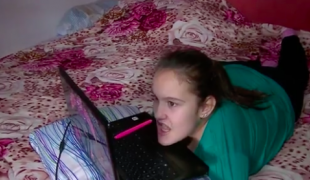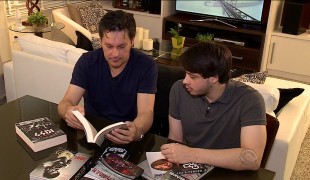- 7209
- 509
- 8
- 10
- 1
- Help Ukraine
About the solution
Mick created SpecialEffect in 2007, after being involved with setting up computer equipment for disabled children so that they could study. However, the teacher noticed that they often had no way to play or relax after school and at weekends.
“I realised how difficult it was for children with severe physical disabilities to be able to play independently. It is something that is so important for their psychological development, physical development, motivation and a way to make friends,” the founder explained.
SpecialEffect helps children and adults. It is composed of a team of occupational therapists and technologists tailor set-ups to individuals’ needs. They modify voice controls to eye gaze trackers, or simply change the springs inside a games controller to make a joystick easier to move.
“It is very customised. There aren’t many people who use the same control method with the same game,” he added.
The institution also workings towards raising awareness of this issue. Special Effect tries to make companies more sensitive about how they might make their games more accessible for disabled gamers. Sometimes it only requires no more than changing a few lines of code. SpecialEffect is also developing its own code — for example, to help disabled gamers play Minecraft, the popular building and survival game — and will make this open-source and available to anyone.
Adapted from: https://on.ft.com/2qPWi3x
More info: https://www.specialeffect.org.uk/
https://youtu.be/uZgV1GPlpE4
This solution shall not include mention to the use of drugs, chemicals or biologicals (including food); invasive devices; offensive, commercial or inherently dangerous content. This solution was not medically validated. Proceed with caution! If you have any doubts, please consult with a health professional.
DISCLAIMER: This story was written by someone who is not the author of the solution, therefore please be advised that, although it was written with the utmost respect for the innovation and the innovator, there can be some incorrect statements. If you find any errors please contact the patient Innovation team via info@patient-innovation.com
-
-
525
-
0
-
7959

Glasses to serve as mouse for disabled people
CAREGIVING
Playing
Video gaming
Studying
Bone Disorders (Decalcification, Bone Deformity, Bone Fracture, Bone Infection)
Assistive Technology access
Body-Worn solutions (Clothing, accessories, shoes, sensors...)
Educational/Leisure device (book, toy, game...)
Difficulty walking or moving
Muscle weakness
Limited range of motion
Muscle pain or stiffness
Reduced grip force (grip)
Loss of muscle coordination
Muscle cramps or spasms
Joint deformity
Joint redness or warmth
Difficulty bearing weight
Muscle twitching
Numbness or tingling in the extremities
Joint pain or swelling
Promoting self-management
Preserving Organ Function
Managing Neurological Disorders
Promoting inclusivity and social integration
Medical Genetics
Neurology
Orthopedics
Rheumatology
Mobility issues
Solutions for Disabled people
Brazil
-
-
-
828
-
0
-
17961

Proloquo2Go – App to help people communicate
CAREGIVING
COMMUNICATION: Communicating, whether by speaking, listening, or other means
Social interaction
Paralysis
Autism
Cerebral Palsy
Brain Stroke
Brain Injury (Abscess, Brain Barrier Defect, Brain Contusion, Brain Hemorrhage, Brain Edema)
Assistive Daily Life Device (to help ADL)
Assistive Technology access
App (Including when connected with wearable)
Tremors
Muscle cramps or spasms
Difficulty coordinating movements
Muscle weakness
Difficulty speaking or understanding speech
Trouble with fine motor skills (e.g., writing, buttoning clothes)
Twitching or involuntary movements (myoclonus)
Acquired language impairment (Aphasia)
Promoting self-management
Managing Neurological Disorders
Building Supportive Community Relationships
Promoting inclusivity and social integration
Improving Speech and Communication
Caregiving Support
Clinical Pathology
Medical Genetics
Neurology
Pediatrics
Rheumatology
Netherlands
-
-
-
360
-
0
-
4459

Father creates app for son to inform about accessibilities
MOVING IN A WHEELCHAIR: Moving using a wheelchair.
Attend Concerts/Performances
Watching movies
Spinal Cord and Nerve Root Disorders
App (Including when connected with wearable)
Restoring mobility
Promoting self-management
Managing Neurological Disorders
Building Supportive Community Relationships
Promoting inclusivity and social integration
Enhancing Mental Health
Raise awareness
Caregiving Support
Orthopedics
Physical Medicine and Rehabilitation
Rheumatology
Brazil
-
 en
en
paila118 • Wed, 12/18/2019 - 15:49
Thank you very much for creating these solutions for people with disabilities.